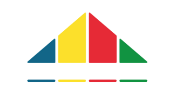Maths

Year 7
Students will develop their mental and problem-solving skills. This will be done whilst studying the 5 main strands of maths – number, ratio and proportion, algebra, shape and measure and data handling. All 5 areas will be applied to real life situations to develop and enhance their ability to be able to apply the skills learnt.
Students will strengthen, deepen and extend their Mathematical knowledge developed during KS2 beginning with basic algebra such as sequences, notation and equations. This will enable pupils to transfer their thinking from just numerical to algebraic too.
A significant proportion of the year is spent on number to ensure pupils can use efficient and effective methods to fluently perform calculations. These key number topics such as calculating with fractions will be revisited again during starter activities in later years to ensure pupils retain these key skills.
The summer term will be spent studying geometry, data handling and proof to ensure pupils have had sufficient exposure to basic rules and principles such as the sum of angles around a point or in a polygon. This will provide the building blocks for future learning.
Students will also have at one lesson a fortnight on MathsWhizz where each student will practice each objective of the curriculum, prepared to target specific gaps in their knowledge and understanding.
Year 8
Students will develop their mental and problem-solving skills. This will be done whilst studying the 5 main strands of Maths– number, ratio and proportion, algebra, shape and measure and data handling. All 5 areas will be applied to real life situations to develop and enhance their ability to be able to apply the skills learnt.
Students will strengthen, deepen and extend their Mathematical knowledge developed during Year 7 beginning with basic ratio and proportion such as simplifying ratios and sharing in a ratio. This will enable pupils to develop a broad skill set to solve more complex future as their learning develops.
A significant proportion of the year is spent on algebra to ensure pupils can use efficient and effective methods to fluently perform routine operations. These key algebra topics such as expanding brackets will be revisited again during starter activities in later years to ensure pupils retain these key skills.
The summer term will be spent studying geometry and data handling to ensure pupils have had sufficient exposure to basic rules and principles such as angles in parallel lines and polygons. This will provide the building blocks for future learning.
Students will also have at least one lesson a fortnight on MathsWhizz where each student will practice each objective of the curriculum, prepared to target specific gaps in their knowledge and understanding.
Year 9
In Year 9 students study the 5 main strands of mathematics - number, ratio and proportion, algebra, shape and measure and data handling. Mathematical problems are often presented as real-life situations with problem solving and reasoning at the heart of their learning. Students who grasp concepts rapidly will be challenged through being offered rich and sophisticated problems which require them to justify and reason their mathematical skills.
Over the course of this year students will begin to study more complex mathematical topics such as proof, reverse percentages and Pythagoras’ Theorem. A key theme for this year will be developing students’ reasoning ability as they develop their range of mathematical skills.
The first half term is spent looking at algebra which provides a good base for later topics such as deduction. The second and third half-terms both look at topics which are used in everyday life such as constructions and money.
The fourth and fifth half-terms are spent laying the foundations for further study by looking at Maths specific to right-angled triangles and similar shapes.
Where appropriate, students may also have at one lesson a fortnight on MathsWhizz where each student will practice each objective of the curriculum, prepared to target specific gaps in their knowledge and understanding.
Year 10
In Years 10 & 11, the new mathematics GCSE will demand deeper and broader mathematical understanding. It will provide all students with greater coverage of key areas such as ratio, proportion and rates of change and requires students to apply their knowledge and reasoning to provide clear mathematical arguments. It will focus on ensuring that every student masters the fundamental mathematics that is required for further education and future careers. It will provide greater challenge for the most able students by thoroughly testing their understanding of the mathematical knowledge needed for higher level study and careers in mathematics, the sciences and computing.
In Year 10 students will study advanced topics for this first time such as trigonometry, vectors and simultaneous equations. This will build on work from previous years where skills such as solving equations will be used within these more complex topics.
During the year pupils who are expected to be entered for the Higher tier will begin to study more specific content such as circle theorems and the nth term for a quadratic sequence. Pupils will begin to sit mock GCSE papers to practice their recall skills, identify gaps in their knowledge and practice answering exam questions.
Towards the end of the year pupils who have been identified as benefitting from extra support will begin to attend period 6 and/or form time intervention.
Year 11
In Years 10 & 11, the new mathematics GCSE will demand deeper and broader mathematical understanding. It will provide all students with greater coverage of key areas such as ratio, proportion and rates of change and requires students to apply their knowledge and reasoning to provide clear mathematical arguments. It will focus on ensuring that every student masters the fundamental mathematics that is required for further education and future careers. It will provide greater challenge for the most able students by thoroughly testing their understanding of the mathematical knowledge needed for higher level study and careers in mathematics, the sciences and computing.
If you would like any more information about our Maths curriculum, please contact Mrs C Erskine, Head of Maths, by emailing cerskine@colneprimet.co.uk, filling in the form on our contact us page or phoning the main office to arrange a call back.
